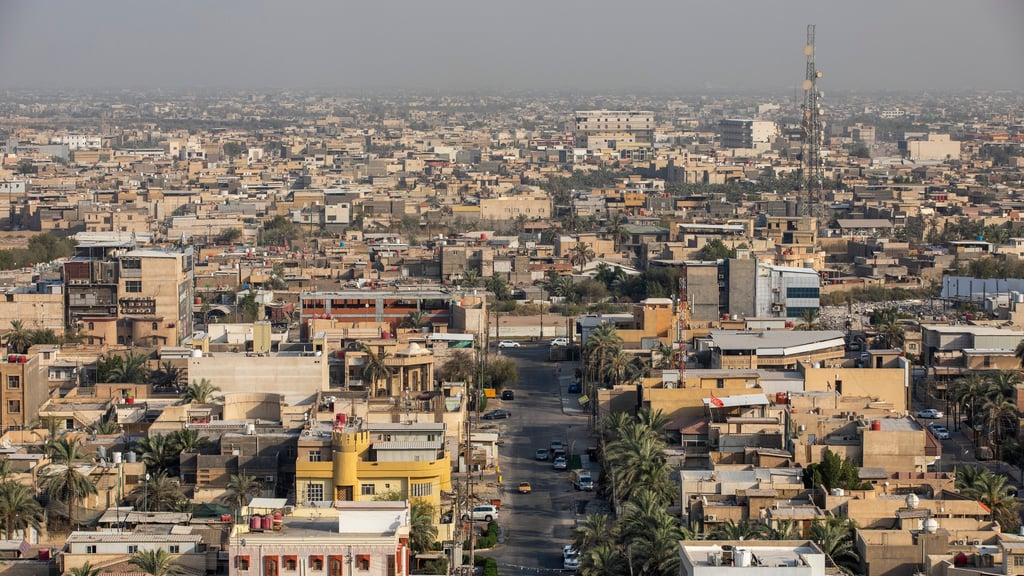ENROLMENTS OPEN: Miftah Program (See here)

A Heart Untethered
Where loneliness became devotion, and longing became love


Basrah, 8th century CE
The sun hammered down on Basrah, baking its alleys into rivers of dust and heat. Traders shouted over the clatter of carts, merchants bargained in every corner, and the city throbbed with restless life. Yet in its chaos, one thin girl moved like a ghost. Barefoot, hungry, unnoticed, she slipped through shadows, her name unheard, her presence almost forgotten.
Rābiʿah ʿAdawiyyah.
The daughter of poverty. The child of loss. The servant sold for a few coins in the marketplace.
Loneliness pressed at her from every side. She had no father to shield her, no mother to comfort her, no friend to confide in. But in that emptiness, she turned inward… and found that her heart could still speak.
And it spoke to Allah.
In the world’s eyes, she was no more than a shadow.
Yet in the eyes of the One she loved, she was already a flame.
They say her nights were not spent in complaint, but in prayer. In the still hours, while others collapsed in exhaustion, her lips moved with words of longing. Not for escape, not for wealth, not even for relief. Her plea was stranger, purer. She asked only for Allah.
Her master awoke one night and saw light spilling from her small room. Perhaps it was a lamp. But there was no lamp.
It was a glow, the glow that comes from a heart set ablaze with worship. Awed, he freed her.
Freedom did not change her. She was already free.
Rābiʿah wandered through the world untethered. She owned nothing, desired nothing, asked nothing. She carried only a reed mat, a broken jug, and a heart that refused every weight except the remembrance of Allah.
Others prayed out of fear of Hell. Others laboured for the promise of Paradise. But she spoke words no one had dared to utter as she did:
“O Allah, if I worship You out of fear of Hell, burn me in it.
If I worship You for Paradise, exclude me from it.
But if I worship You for You alone… then veil me not from Your beauty.”
In a world where faith was often weighed like coin, she broke the measure. She showed that love - unselfish, consuming, absolute - could itself be worship.
She did not stand on pulpits. She did not summon crowds.
Basra’s streets could not contain her heart. She walked with nothing but a staff in her hand, her gaze, her longing, her entire being fixed on the Divine.
Yet those who hungered for truth found her and came, sitting at her doorstep not to honour her name, but to drink from the depth of her devotion.
Scholars came, seekers arrived. Hasan al-Basri, towering voice of his age, once bowed in silence before her. When she spoke, her words pierced deeper than any sermon; when she wept, her tears carried more than poetry. They carried the weight of longing, the fragrance of love for Allah alone.
They called her mystic, saint, a pioneer of divine love.
But to herself, she was simply a servant, offering nothing but love to her Beloved.
When asked why she never married, she smiled, and her eyes sparkled with certainty:
“My heart is bound. How could I tie it to any but Him?”
Her detachment from the world was not born of bitterness or the scars of deprivation. It was born of friendship. She lived in companionship with Allah, and once you taste that closeness, every other bond feels pale.
Her life was not simply renunciation; it was reclamation. By letting go, she claimed the only wealth that mattered: a heart unbound, a soul ablaze with love. Long before doctrines and treatises gave names to the Sufi path, she had walked it - barefoot through Basra, with nothing but longing in her eyes and devotion in her steps.
Her life left no monuments of stone, no libraries of ink. Only a handful of sayings, a few remembered moments.
And yet, those fragments were enough to ignite centuries of seekers, who walked paths of longing traced first by a poor woman in Basra.
Rābiʿah did not live to be remembered.
She lived to burn away every motive besides Allah.
Some women build universities, some preserve libraries, some rule the margins of empires.
Rābiʿah ʿAdawiyyah built nothing the eye can see.
She built a friendship with Allah so deep, it outlived her poverty, her obscurity, her time.
She asked for nothing.
And so, she was given everything.
What will you let go of - completely - until your heart burns only for Him?
Download Your Reflection Journal
Take a quiet moment to reflect on the legacy of Rābiʿah ʿAdawiyyah, the woman whose heart burned only for Allah, and explore what you are holding onto - and what you might let go of - as you search for your own place in the world.
What’s inside:
A Reflection Worksheet with thought-provoking questions
A beautifully designed Poster to print and pin up for daily inspiration
Perfect for:
Women, girls, educators, and anyone seeking to live with intention, love deeply, and cultivate a heart that burns for what truly matters.
Basrah today; the alleys where Rābiʿah wandered are gone, the dust settled, names erased. Still, the world remembers.
Disclaimer: Traces of Her offers a creative interpretation of the lives of Muslim women from the past. Since many aspects of their daily lives are not fully documented, much of the series is based on imagination, inspired by common human experiences, and informed by historical context. The visual depictions and scenarios aim to provide a relatable and engaging setting, helping modern readers connect with and understand our rich heritage. While the scenes are not necessarily historically accurate, they are designed to evoke the essence of what life may have been like, offering a glimpse into the past through the lens of storytelling.
